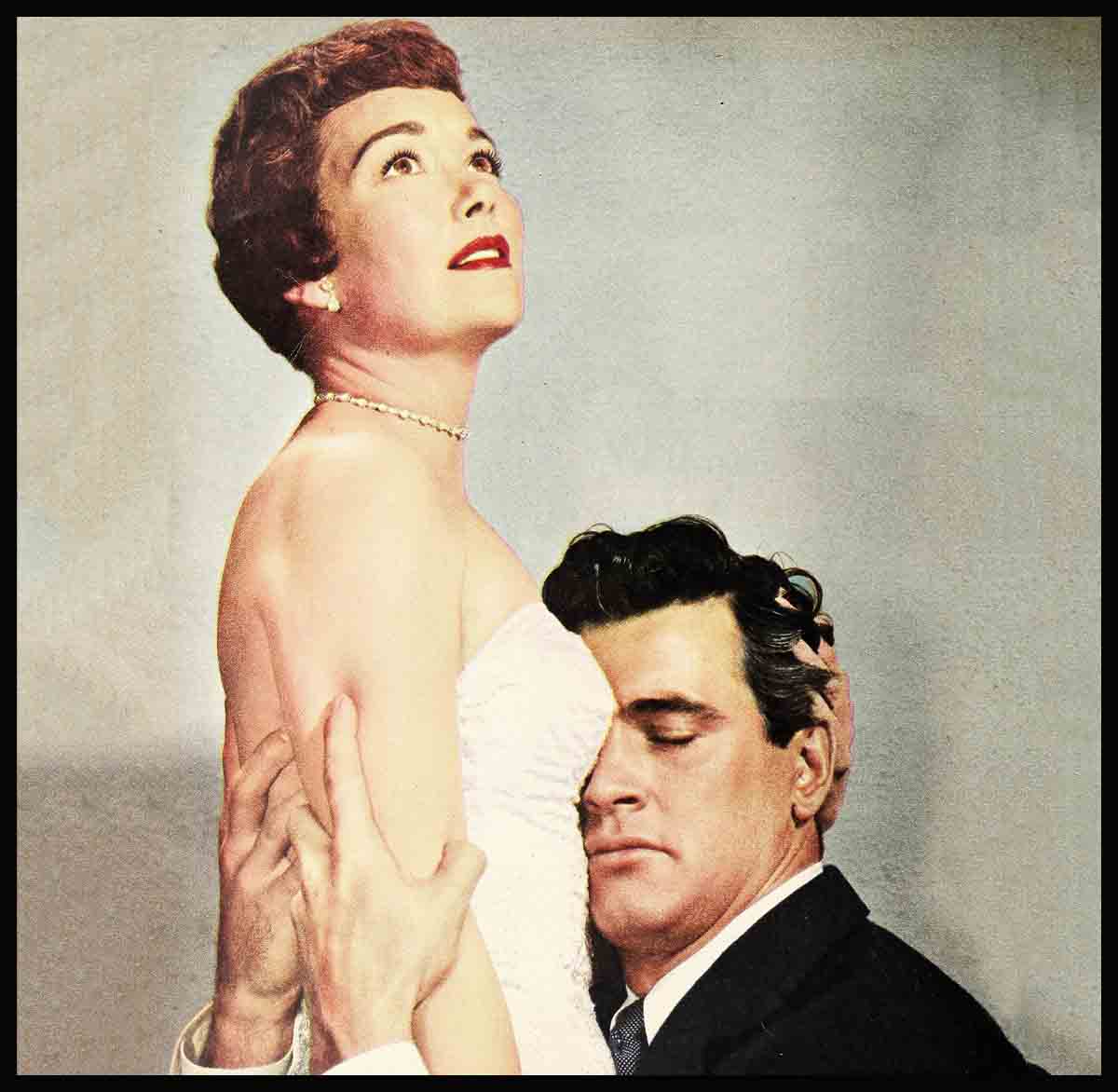
Where Do I Go From Here?—Jane Wyman
In Hollywood, they are calling Jane Wyman the number one hit-and-miss girl f the movies. Talented protagonist of one Academy Award winning picture, and a round dozen of equally good pictures, Jane has yet to prove that she is a star of top caliber—and one the public is never tired of paying good money to go and see.
Today, if you listen to the Hollywood and Vine underground, Jane has reached the crossroads of her career, needs a new strong hypo to reach the top and finally stay there.
“Her career,” says one informant, “has been like her private romantic life—all ups and downs. No girl ever deserved better breaks than she has gotten, only Janie just doesn’t seem to grasp the better opportunities and hang on to them—or make them pay.”
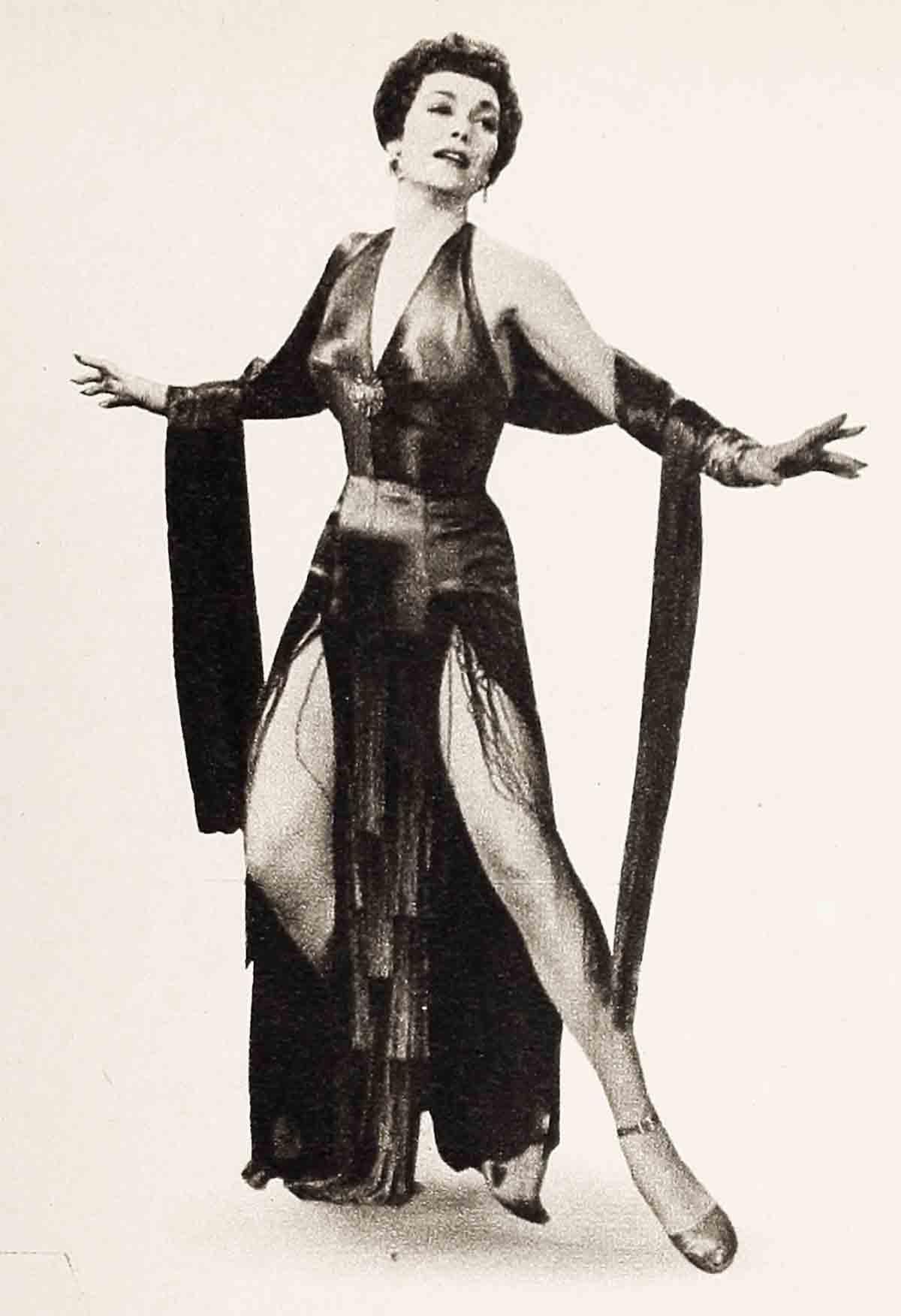
After her flawless performances in “Johnny Belinda” in which she didn’t speak a word, and in “The Lost Weekend” in which she had plenty to say, a top motion picture critic enthused, “Miss Wyman has reached the top. She joins the class of Garson, Crawford and Dunne. She is now a dramatic actress the likes of which the whole industry can well be proud.
“The ladder has been a long and hard one to climb,” he went on, “but she has mounted each rung with intelligence and a heart-warmingly inspiring effort to make the grade. In this critic’s opinion she has succeeded in all her aims beyond even her wildest hopes.”
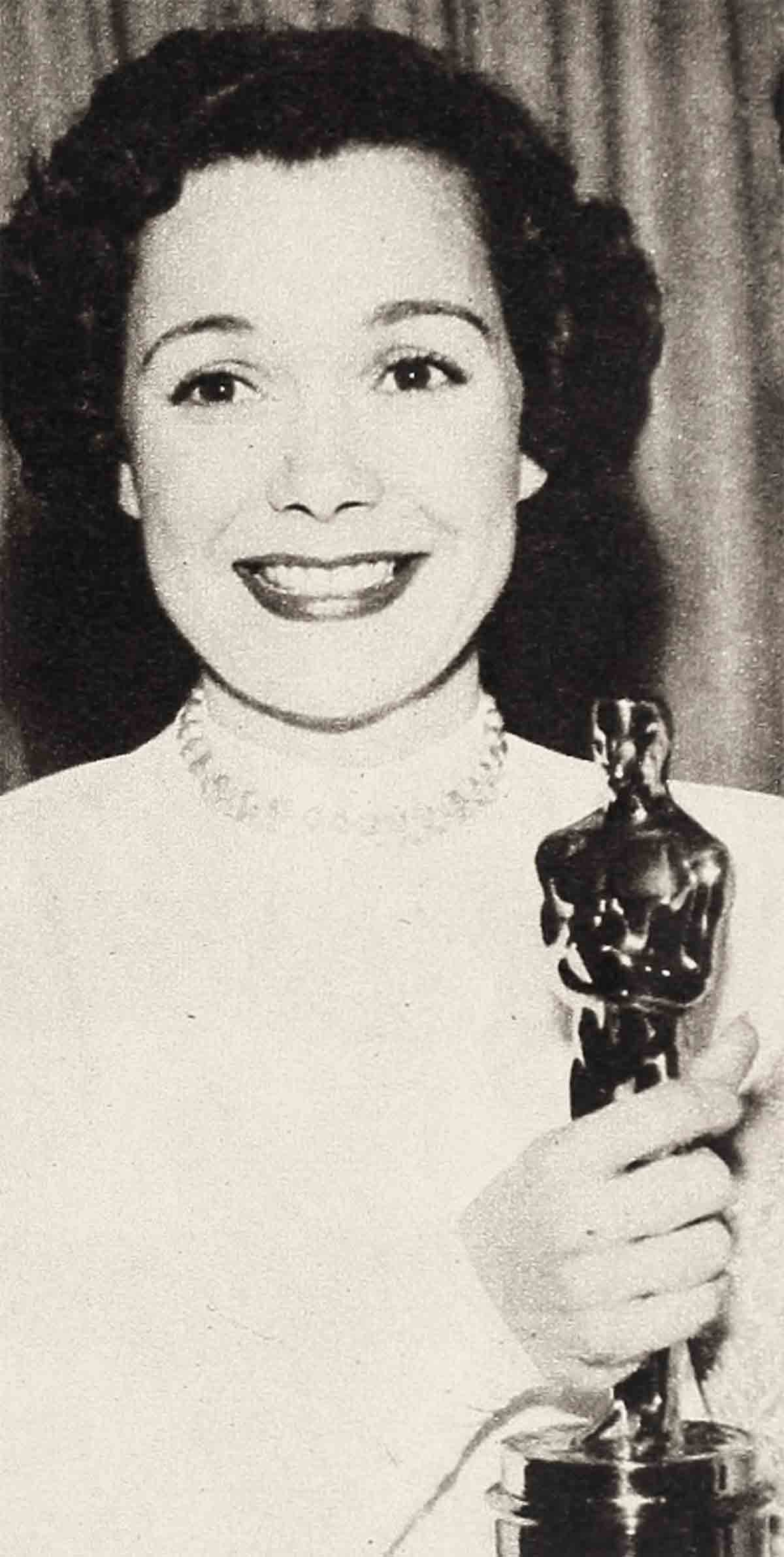
Sad truth is that this critic has since changed his mind, and so have a lot of other people. Pictures that followed her initial successes have not fulfilled either Jane’s hopes, or the hopes that everyone has had for her.
To know what is happening to Jane Wyman is to go back to her personal and private story—the saga of a girl who has tried valiantly to mix ‘studio and home harmoniously but failed lamentably—often miserably—to do so.
Wasn’t it Ronald Reagan who said, “In the break-up of our marriage, if I have to cite a co-respondent it will be Johnny Belinda?” It meant that much to Jane.
And wasn’t it Jane who retorted, “I’ll still make my mark in Hollywood if it kills me!”?
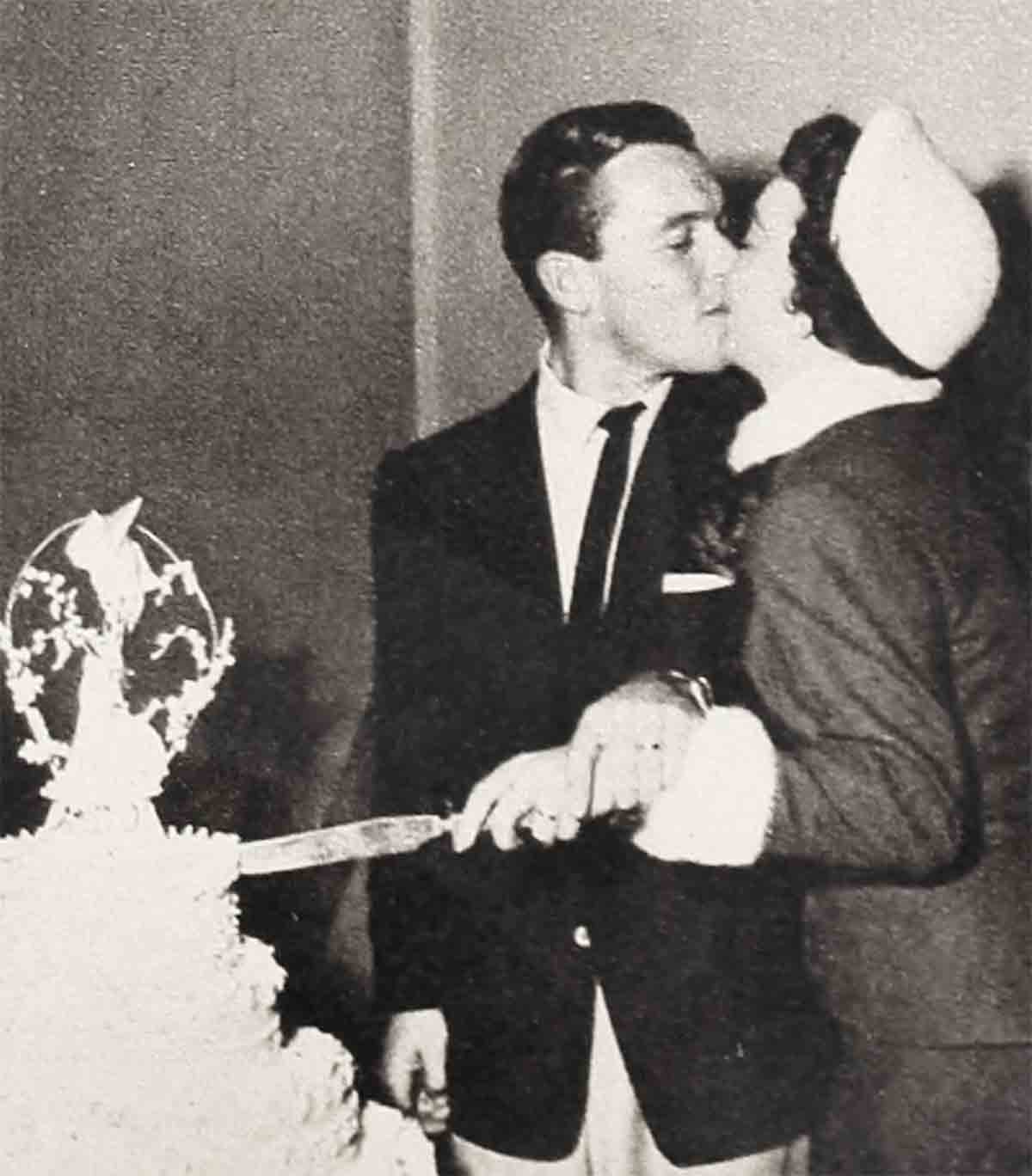
This could very well be the crux of the whole trouble. Perhaps in her determination to make good Jane overlooked the fact that it takes more than being a good actress and hard worker to become a No. 1 box-office favorite. There are those things which the public has come to associate with movie stars—glamour, fire, publicity. These alone have made more stars than even Hollywood cares to admit.
Forty years ago Jane Wyman, then called Sarah Jane Fulks, was born in a cheerless house in St. Joe, Missouri, of parents who were then far from young. She was still a baby when her older brother and sister married, left home, and her father fell pitifully ill.
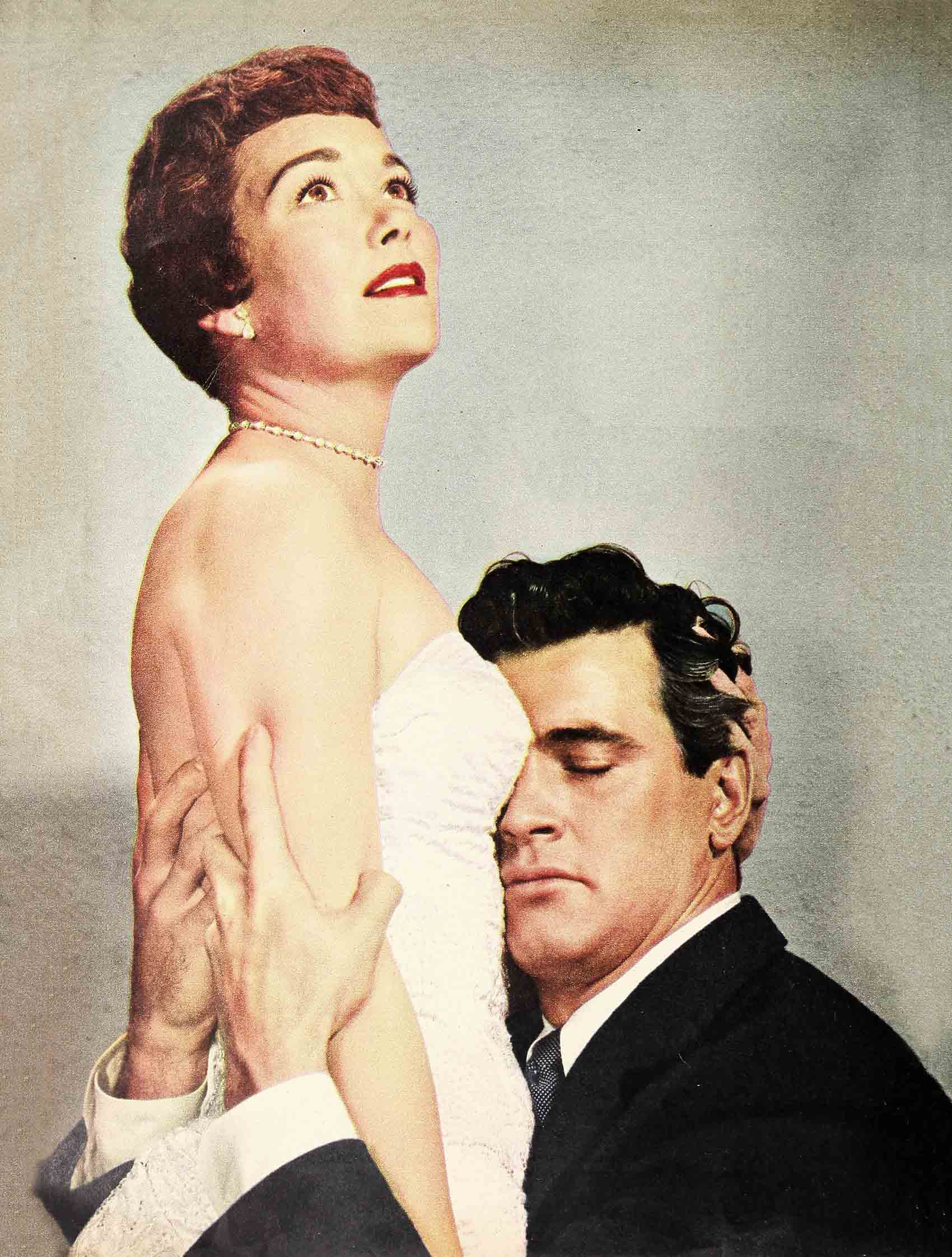
“Laughter had little place in the Fulks home,” recalls an early teacher of Jane Wyman’s, “and her mother was so strict that parental fondness seemed missing, too. Jane grew up in drab, severe clothes, wore lank hair instead of softening curls.”
It was a house of tears, especially when a favorite brother died and Jane felt she didn’t have a real friend in the world. In those formative years, however, she took on a mind of her own, a will to do things that were not always approved by parents and relatives. She prayed to God that she might find her two feet and stand solidly on the uneven ground of her ambitions—to shine in the theatre.
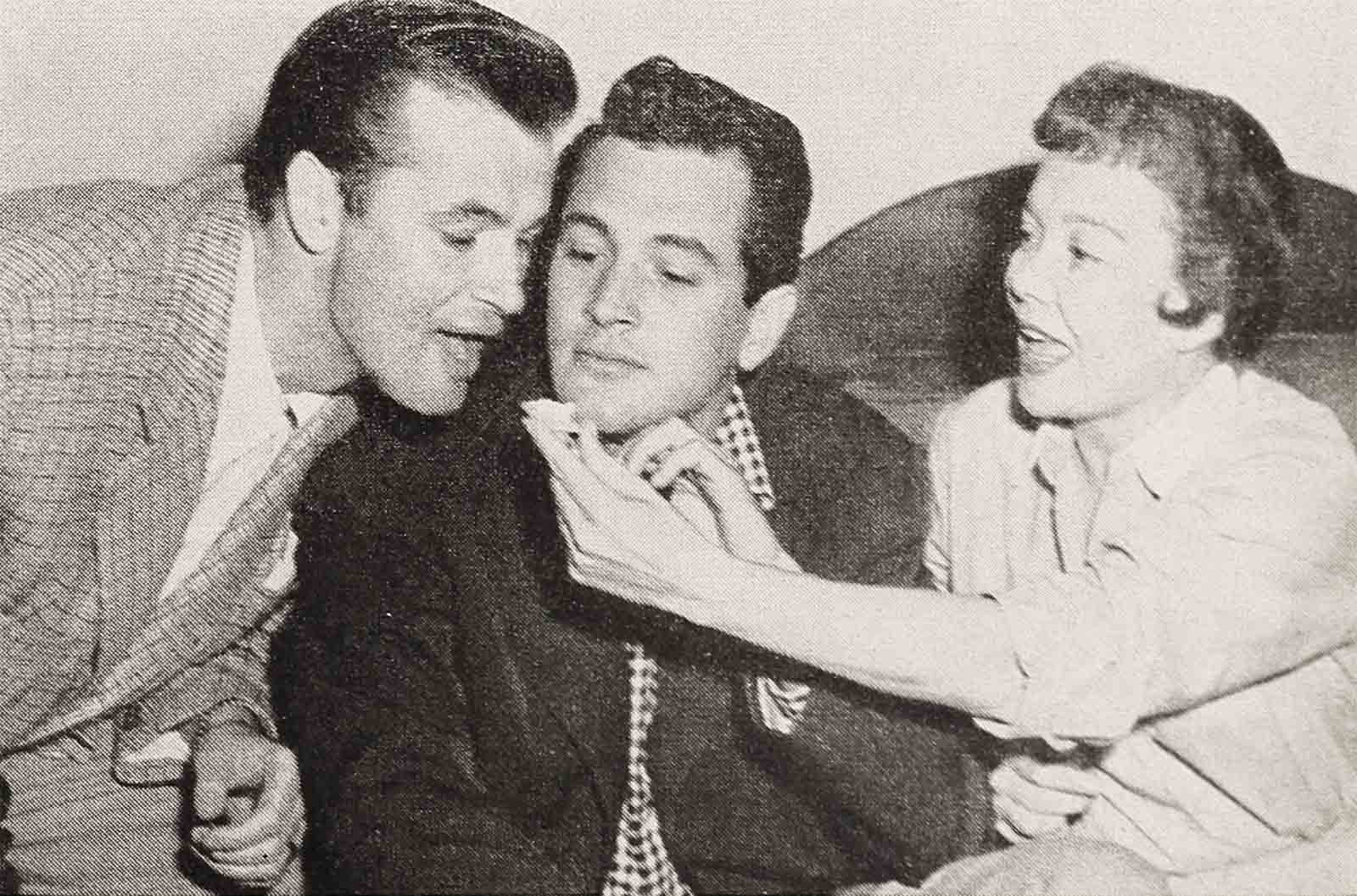
Today Jane possesses the same conviction that somehow, somewhere, she will make good in the field of her endeavor. But the going has been tough, is still tough. Although she thinks in one direction, the turns have been bad ones—a long and exciting life complicated and often interrupted by false decisions in career, failing romances in her private life. All of which have made her unhappy.
In one of the studios where she has worked, the doctor on the lot is also a good psychologist. He once said to Janie, “You know if you had waited to get married until you had reached real maturity, you might have achieved almost everything you desired. Perhaps your husbands were not good for you.”
There were many of them, these husbands. There was the first one whom she married almost when she was a child, and whom she would rather not talk about. And way back in 1937 there was Myron Futterman, a prosperous manufacturer of children’s clothing. After that Ronald Reagan, and still after that, Fred Karger—a man with music in his heart but very little desire to further the ambitious aims of his actress wife.
That marital venture started in 1953, and collapsed in the same year. In the interim, Jane had been wooed, so the story goes, by many attractive men—Bob Taylor, Billie Seymour, Lew Ayres.
What perturbs Hollywood is that Jane Wyman, with all her fine talents and personal sensibilities, may never achieve a real niche in either her work or her life away from the cameras.
“Brought up with unhappiness,” says a former secretary of the star, “she finds it hard to believe that she will ever be really happy—either in her work or in her own home. She faces everything in life with a cautious, almost defeatist attitude—believing that a human being is always on his own and can rarely depend on the help of others.”
If that is true, it’s not a correct attitude. Jane Wyman is one of the most popular girls in Hollywood, as well as one of the most gifted, and there is practically no one—from top studio executive to the lowliest grip—who wouldn’t like to see her shine in everything she attempts.
Leave it to a prop man at Warners’ to make rather a sage remark, “Jane Wyman has never really grown up. She is a child who, once hurt, believes she can be hurt again and again. Acting is in her blood, and she is ready to spill pints of it to get what she really wants. If she wants to get where she thinks she wants to get, she’ll have to forget all of the past, and live only for the future.”
The trouble with Jane Wyman, though, is that she lives merely for the present, and in so doing swallows many a bitter pill. She doesn’t look ahead far enough to believe that there can be sugar-coated ones, too. In a sombre moment she once said, “Where am I going?”
Her best friends could tell her: Far and UP, if she forgets the misses and remembers the hits. On the other hand, her worst enemies—if she has any—can say, Nowhere—if she doesn’t work a little less and live a little more!
THE END
—BY MICHAEL SHERIDAN
It is a quote. SCREENLAND MAGAZINE APRIL 1954




